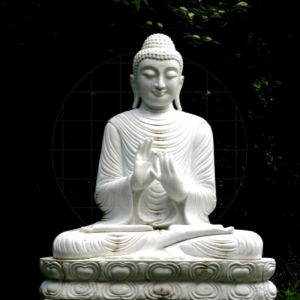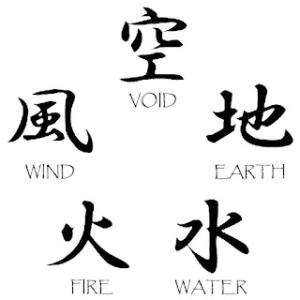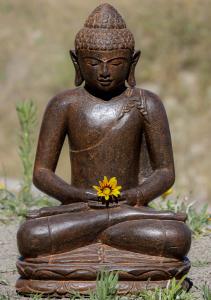 Most in the West think of spiritual teachers as the all-inclusive types who never defend objective truths they hold, never call anything else error or a lie, but simply smile and praise us when we spew silly ideas that make no sense, remaining entirely agreeable all the time. Perhaps that’s because Westerners tend to be lazy. Now, I know that is probably going to offend someone, and that’s okay. If it offends you, then perhaps you need this article more than others. Westerners don’t like their presuppositions challenged. Our pseudo-culture of rugged individualism has given birth to a generation of narcissistic, complacent people who just want the spiritual teacher to nod and affirm them in their errors. Any challenge to those errors is met with abstinence and, as I discovered recently, heaps of insults, including how a particularly absurd concept I had questioned was beyond my ability to comprehend. I was called a fraud, unenlightened, and a host of other amusing names. When my detractor finally said, “You’re not enlightened”, I really had to laugh. If we’re incapable of answering basic questions about our presuppositions, are we really in a position to determine who is and is not “enlightened”? All of this because I didn’t pat him on the head and agree with him, but rather asked him difficult questions he was ill prepared to answer adequately and challenged the wisdom of his idea. His illusions had been threatened and he lashed out.
Most in the West think of spiritual teachers as the all-inclusive types who never defend objective truths they hold, never call anything else error or a lie, but simply smile and praise us when we spew silly ideas that make no sense, remaining entirely agreeable all the time. Perhaps that’s because Westerners tend to be lazy. Now, I know that is probably going to offend someone, and that’s okay. If it offends you, then perhaps you need this article more than others. Westerners don’t like their presuppositions challenged. Our pseudo-culture of rugged individualism has given birth to a generation of narcissistic, complacent people who just want the spiritual teacher to nod and affirm them in their errors. Any challenge to those errors is met with abstinence and, as I discovered recently, heaps of insults, including how a particularly absurd concept I had questioned was beyond my ability to comprehend. I was called a fraud, unenlightened, and a host of other amusing names. When my detractor finally said, “You’re not enlightened”, I really had to laugh. If we’re incapable of answering basic questions about our presuppositions, are we really in a position to determine who is and is not “enlightened”? All of this because I didn’t pat him on the head and agree with him, but rather asked him difficult questions he was ill prepared to answer adequately and challenged the wisdom of his idea. His illusions had been threatened and he lashed out.
I did the same thing myself years ago. My spiritual teacher would frequently tell me how stupid something I said was, especially when I tried to argue for that stupidity. I recall one time doing my best to argue for the “universe” as a deity, and him taking my argument apart piece by piece, each time saying, “Do you understand how stupid this is now?” He wasn’t smiling, he didn’t pat me on the back and say, “Well, I have to respect all ideas equally, so carry on.” He was stern, his voice raised several times, he chastised me in front of the other students, and I felt completely humiliated. And that was good. Why? My ego jumped to the fore when a precious presupposition I held was challenged. I needed to be taken down a few notches. But then, after the class he patted me on the back with a big smile and said, “Don’t take it so hard. A loving father will correct his son. To do anything less is hatred and neglect.”
The spiritual teacher, no matter how much the lazy, indulgent Western mind hates it, will piss you off. He will say things to bruise your ego. Think about the times you learned some of your most valuable lessons. If you’re like most people, they were learned under difficult circumstances, not comfortable. Sure, praise, kindness and compassion are important and make you feel wonderful and affirmed, but they don’t teach you anything when you’re wrong. Those who contribute to our development throughout life are those who don’t put up with our stupidity. They call us out when we’re wrong, tell us the truth and challenge our defiance. That is how growth comes. The steel of the blade is forged in fire, not snow. As Social Scientist Brooke Meredith put it:
“..your most poignant, powerful spiritual teachers are the ones who challenge you. The ones who push back where you likely do not know it’s needed. They can be people who disagree with and even insult you.”
I’ve been known to push people on their presuppositions, precisely because it is obvious they’ve not invested any significant thought into them. Part of developing the consciousness necessary for successful spiritual life is examining concepts and ideas carefully, otherwise we find ourselves simply trading one set of errors for another throughout our lives. Spiritual life isn’t something to be approached so haphazardly. It is serious work and requires serious diligence. Be honest with yourself: do you really want a spiritual teacher, or do you just want someone to act as an echo chamber for your mistaken notions?
We can attack our teachers as they appear, and cling to our illusions, or we can patiently endure the fires of the challenge. Which do you want more? Truth or the illusion?












